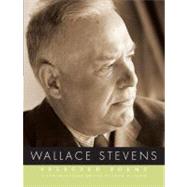
Wallace Stevens was born in Reading, Pennsylvania, on October 2, 1879, and died in Hartford, Connecticut, on August 2, 1955. In his lifetime, he was awarded the Bollingen Prize in Poetry, two National Book Awards, and the Pulitzer Prize. From 1916 on, he was associated with the Hartford Accident and Indemnity Company, of which he became vice president in 1934.
John N. Serio is the longtime editor of The Wallace Stevens Journal. His publications include Wallace Stevens: An Annotated Secondary Bibliography, Teaching Wallace Stevens, and The Cambridge Companion to Wallace Stevens. He is a professor at Clarkson University in Potsdam, New York.
The New copy of this book will include any supplemental materials advertised. Please check the title of the book to determine if it should include any access cards, study guides, lab manuals, CDs, etc.
The Used, Rental and eBook copies of this book are not guaranteed to include any supplemental materials. Typically, only the book itself is included. This is true even if the title states it includes any access cards, study guides, lab manuals, CDs, etc.
Excerpted from Selected Poems by Wallace Stevens
All rights reserved by the original copyright owners. Excerpts are provided for display purposes only and may not be reproduced, reprinted or distributed without the written permission of the publisher.